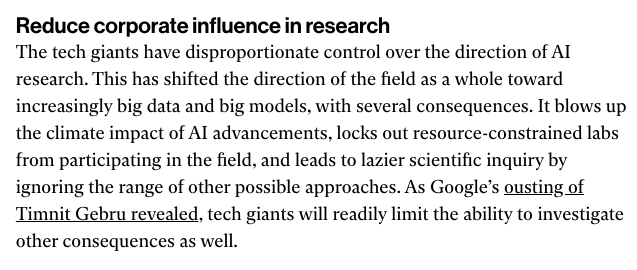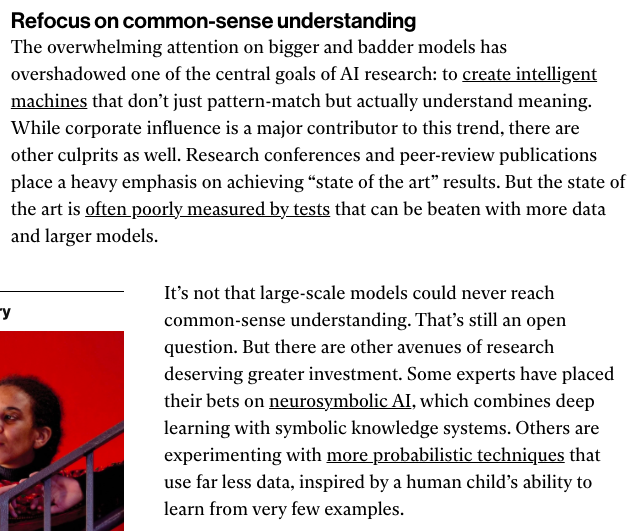Ok a bunch of people have been in my replies asking, "Are you arguing that we should stop developing AI?" "Are you saying we should be Luddites?"
No, I'm not at all saying that. So let me reframe my argument in different language. https://twitter.com/_KarenHao/status/1352351447803965441
No, I'm not at all saying that. So let me reframe my argument in different language. https://twitter.com/_KarenHao/status/1352351447803965441
I'm saying that we need to be really honest about the costs and benefits of a technology when we analyze where that technology will be, on balance, good for the world.
So let's do this cost-benefit analysis for gargantuan AI models.
So let's do this cost-benefit analysis for gargantuan AI models.
We've already observed many of the costs of these models. They are environmentally and financially, as well as computationally costly. The last of these makes AI development far less accessible to resource-constrained environments, like labs in academia and developing countries.
I write more on the ripple effects of these compounding costs here. https://www.technologyreview.com/2021/01/08/1015907/ai-force-for-good-in-2021/
Meanwhile, we have observed some but not most of the benefits that will eventually be derived from gargantuan models. So we have to speculate what those benefits will be.
We can be pragmatic and speculate that these AI models will create better chatbots that improve customer service. We can also be wildly optimistic and speculate that these models AI will cure cancer.
You could say that each of these speculations have points associated with them. Things that are mildly beneficial (example one) get a small amount of points. Things that are hugely beneficial (example two) get a whopping amount of points. BUT
We also need to assign an expected value to each of these speculations. Things that are pragmatic have a high expected value. Things that are highly idealistic have a low expected value.
So when people argue that big AI models could cure cancer & make the costs worth it, I'm thinking: that is a massive benefit but has a tiny expected value. Multiply that out, and you can only add a small expected benefit to your overall cost-benefit equation.
What's an alternative? AI models that aren't so massive & costly but may have the same expected benefit of curing cancer. Does that exist yet? No. But the research foundations for such alternatives, like data-efficient models, do. We should invest more in those approaches.
With such approaches, we would lower the costs and retain—maybe even increase—the benefits. As a result, we've much more effectively balanced out our cost-benefit equation.

 Read on Twitter
Read on Twitter



